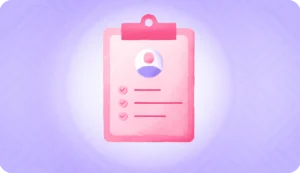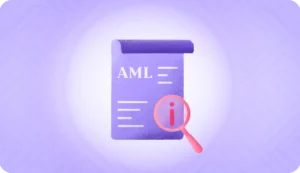When you are in the process of starting a new business, it is important to have a clear understanding of what customer due diligence (CDD) is and how it can help you. Customer due diligence is the process of verifying the identity of your customer and assessing their risk profile. This information, which can be collated using a customer due diligence checklist, can help you decide whether or not to enter into a business relationship with someone.
Besides helping with legal compliance requirements, customer due diligence also aims to mitigate any potential financial, reputational, operational, or security consequences that might arise from dealing with one’s customer base improperly. An example of due diligence is a project proposal. One would want to ensure that the client is a legitimate one, not a scammer and that they are the right fit for the project.
Why and where is customer due diligence needed?
A customer due diligence checklist is needed when a company acquires or enters into a new business relationship. The process includes identifying any issues that may affect the customer’s ability to fulfill contractual obligations, such as financial stability, legal compliance, and systems maturity.
Since a company’s relationship with its customers is of the utmost importance, customer due diligence needs to be performed on any potential customers. If a company is a customer, CCD includes verifying the company meets the necessary legal and financial requirements. The process also includes reviewing the company’s systems for compliance with existing agreements or contracts.
Customer due diligence can be performed on a customer by exploring the following:
- Financial stability
A company must ensure that its customers are financially stable before entering into any agreements. This includes verifying if the customer complies with all financial regulations and checking their credit score. In some cases, companies may require official documentation of bankruptcy proceedings to avoid legal disputes down the road.
- Legal compliance
A company needs to know if its customers are legally compliant and abide by all applicable laws. This includes verifying whether the customer has filed the required paperwork with authorities, paid taxes on time, and complied with any restrictions placed on them by authorities. It is crucial to check for any criminal records that may preclude the customer from completing a transaction.
- System maturity
A company must make sure its customers have systems that are both compliant and up-to-date. This includes verifying whether the customers’ systems meet all regulatory requirements, as well as ensuring that their software complies with existing agreements or contracts. In some cases, companies may require third-party verification of system compliance before entering into a new agreement.
Customer due diligence checklist
- User Verification
According to the KYC regulations, financial institutions must be certain about who they are dealing with before initiating any transactions. To handle customers efficiently, financial institutions must first verify and validate historical data and transactions.
Read more: Understanding the customer identity verification process.
- Securely storing data
All financial transactions, including the results of any research the user may have conducted, must be recorded for five years even after the business relationship is terminated. Data history will help to analyse usage patterns and to get an idea of finances on a deeper level.
To complete an effective CDD, all the important documents must be collected and analysed. Any paperwork demonstrating a potential customer’s entire authenticity would be extremely useful.
- Calculate risk and exposure
There are two aspects to business nature and one aspect to business purpose. The client’s risk profile can be determined by understanding the client’s purpose and business nature. After verifying the customer and its beneficial ownership, the customer’s risk profile must be determined.
- Create a business persona
Each business has a purpose and goal that it wants its customers to achieve. This is why a client needs to understand the main goals of its business partners. For example, a company may have a goal of increasing its revenue in the US, while another company may want to grow its revenue in Africa. A company needs to understand the location of its partners and work with them to help them achieve their goals.
This customer due diligence checklist will ensure that the process is completed correctly:
- Verify that the customer is legitimate and has a good reputation
- Research the products or services offered by the customer
- Inquire about past experiences with the company and its products or services
- Determine if there are any potential problems with the company’s finances, operations, marketing plans, or legal status
- Check out any complaints filed against the customer online
- Speak with colleagues or friends who are familiar with the customer to get their opinion
- Contact the customer directly to ask about their needs and expectations
- Pay attention to changes in the company’s behaviour over time; if there are any major changes, investigate them further
- Decide whether or not to pursue the relationship with the customer
Conclusion
The way that we interact with consumers and businesses is changing at a rapid pace, and businesses need to keep up with the changing times. With fraud rates climbing to new highs, businesses need to make sure that they are checking and double-checking everything about the people that are interacting with their business.
CDD is critical. Carry out the steps from the customer due diligence checklist for your new customers, as you are effectively on the front line for them to build their business and reputation. By carrying out a thorough due diligence process, you can better understand the customer and help minimise the risk of any potential issues or concerns.
FAQs
How to get started with CDD?
Companies should implement customer due diligence to ensure that their clients are legitimate and that they are the right fit for your project. One can research on Google, Bing, or other search engines to see what people have to say about their potential clients. You can also ask your network or other experts in your field.
Why do I need to do due diligence on a business or investment?
Due diligence is important because it can help companies ensure that the company under investigation is legitimate and has good prospects. It can also help you avoid scams, frauds, and other financial problems.
What must customer due diligence include?
You should look at the company’s history, management team, assets, and liabilities. You may also check out consumer reviews or ratings of the company online.





